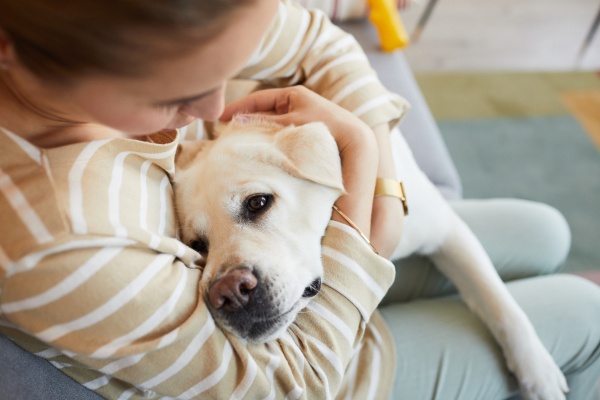Dealing With Depression: The Role of Dogs (and Other Furry Friends) in Therapy

Depression impacts millions of Americans, and therapeutic interventions are constantly evolving. In recent years, research has started to support animal-assisted therapy (AAT) as an option for treating depression and other mental health issues.
Such creative, well-rounded approaches beyond talk therapy could offer unique benefits to those open to exploring how a pet could help you.
Dogs are among the most popular animals that researchers believe may support recovery from symptoms of depression. If you do not have your own animal we have bunnies and dogs in the office. Just let us know your preference!
How Dogs Improve Mental Health
Canine companionship through animal-assisted therapy may improve your mental health and reduce symptoms of depression through a few significant factors. Importantly, those with chronic depression should see AAT as an add-on to traditional talk therapy. Dogs can provide considerable support that makes talk therapy more comfortable and improves outcomes.
If you haven’t had much success with traditional counseling alone and want to explore new options for symptom relief, consider the many benefits of AAT.
Emotional Comfort and Regulation
Research shared by Perspectives on Integrative Medicine suggests that AAT provides emotional comfort and supports improved regulation abilities in those with depression. These outcomes may be due to the release of oxytocin during AAT sessions with dogs, as this neurotransmitter mediates stress reduction and allows for human-animal bonding that encourages positive therapy outcomes.
It can be comforting to co-exist with a calm, gentle animal, even briefly during AAT sessions, and these therapies offer depression patients a moment of much-needed reprieve from daily challenges in a safe and affirming space.
Those engaged in AAT may be better able to regulate their emotions, enjoy a more comfortable counseling experience, and notice improvements in their symptoms overall.
Reduction of Stress
AAT may reduce stress and lower blood pressure when patients have a strong bond with the animal. These effects can be strengthened by incorporating other non-counseling therapeutic methods, such as exercise therapy, to compound the stress-relieving effects. In those with severe or recurrent symptoms, these methods should be used alongside traditional methods, such as additional counseling and medication, to maximize depression relief.
Improved Mood
Simply playing with a dog triggers the release of serotonin and dopamine, the brain’s mood-stabilizing and calming chemicals. Those engaged in AAT may benefit from the consistent boost provided by an energetic, loving companion and may be encouraged to engage in similar positive distractions more often.
Being in a better mood during a therapy session could make opening up and processing difficult emotions easier. These interactions also help patients create positive associations with their therapy experience, increasing engagement.
Consult Unleased Counseling About Dog-Assisted Therapy
If you or a loved one struggles with depression, consider going beyond traditional talk therapy with animal-assisted therapy. Dogs are uniquely suited to providing uplifting companionship, and processing your emotions alongside one may bolster your mental health and reduce depression symptoms.
Unleashed Counseling offers unique immersive experiences with dogs and rabbits to provide a well-rounded healing experience. Schedule your consultation today to learn more about this treatment option. Make your appointment online to get started.
